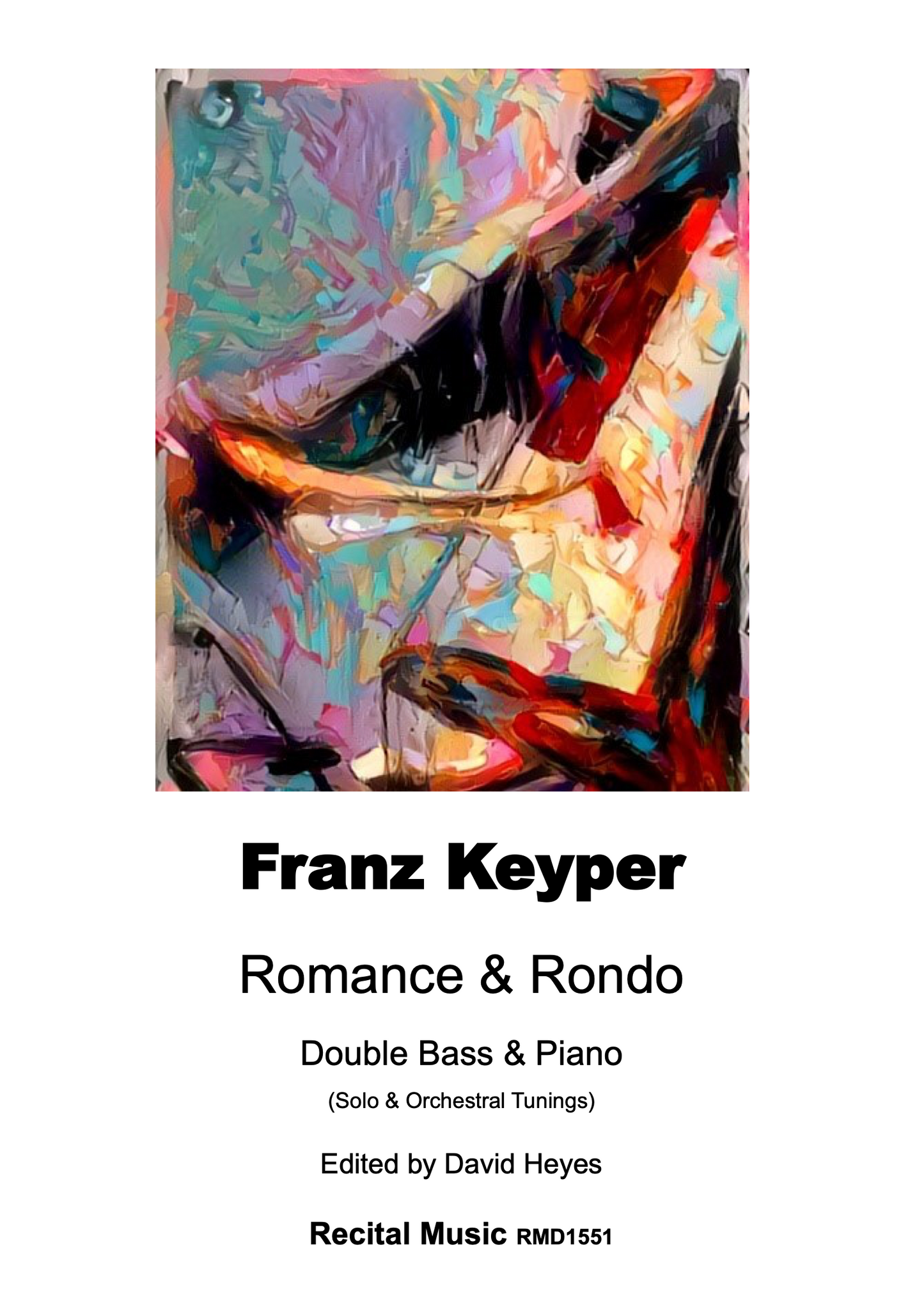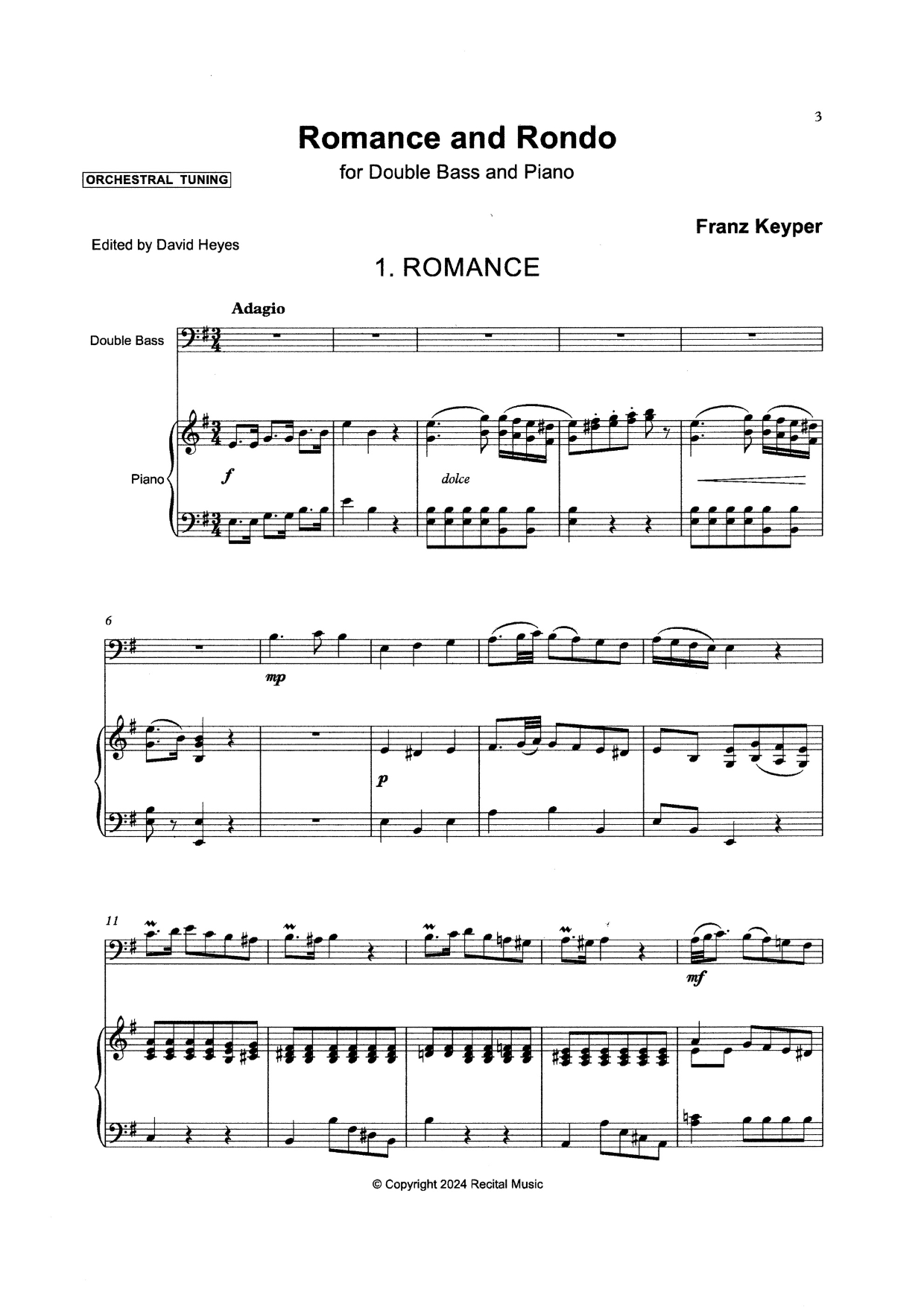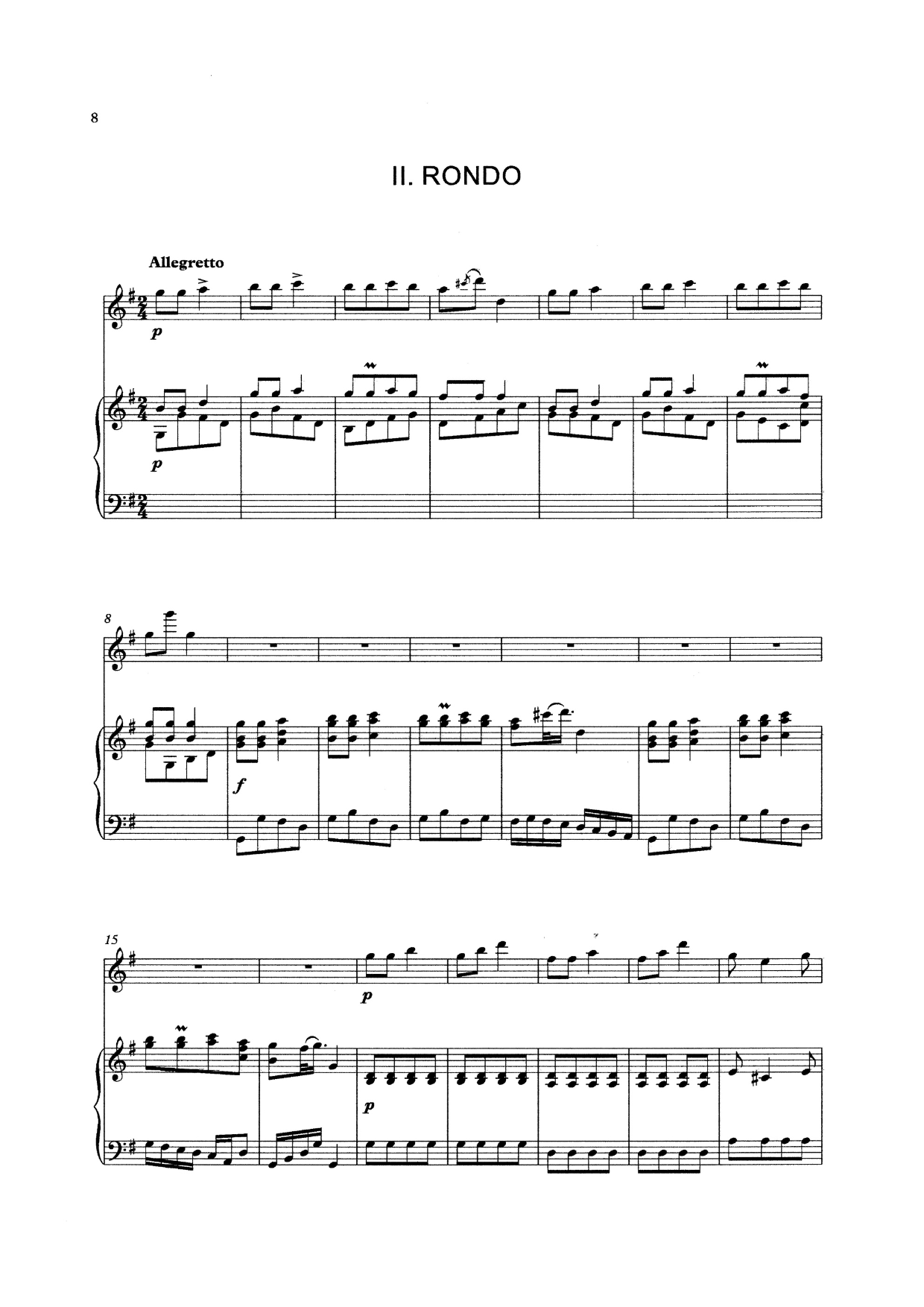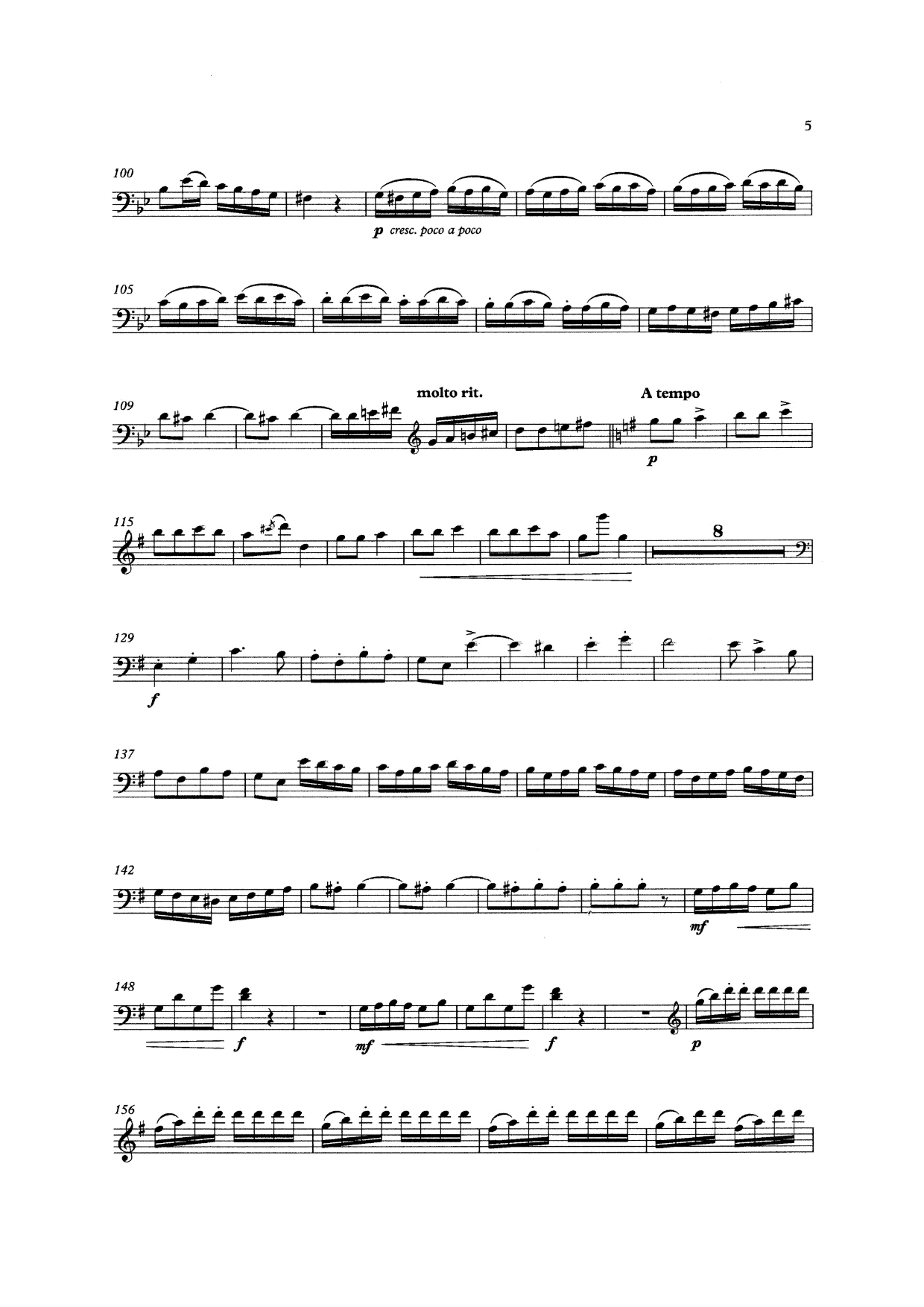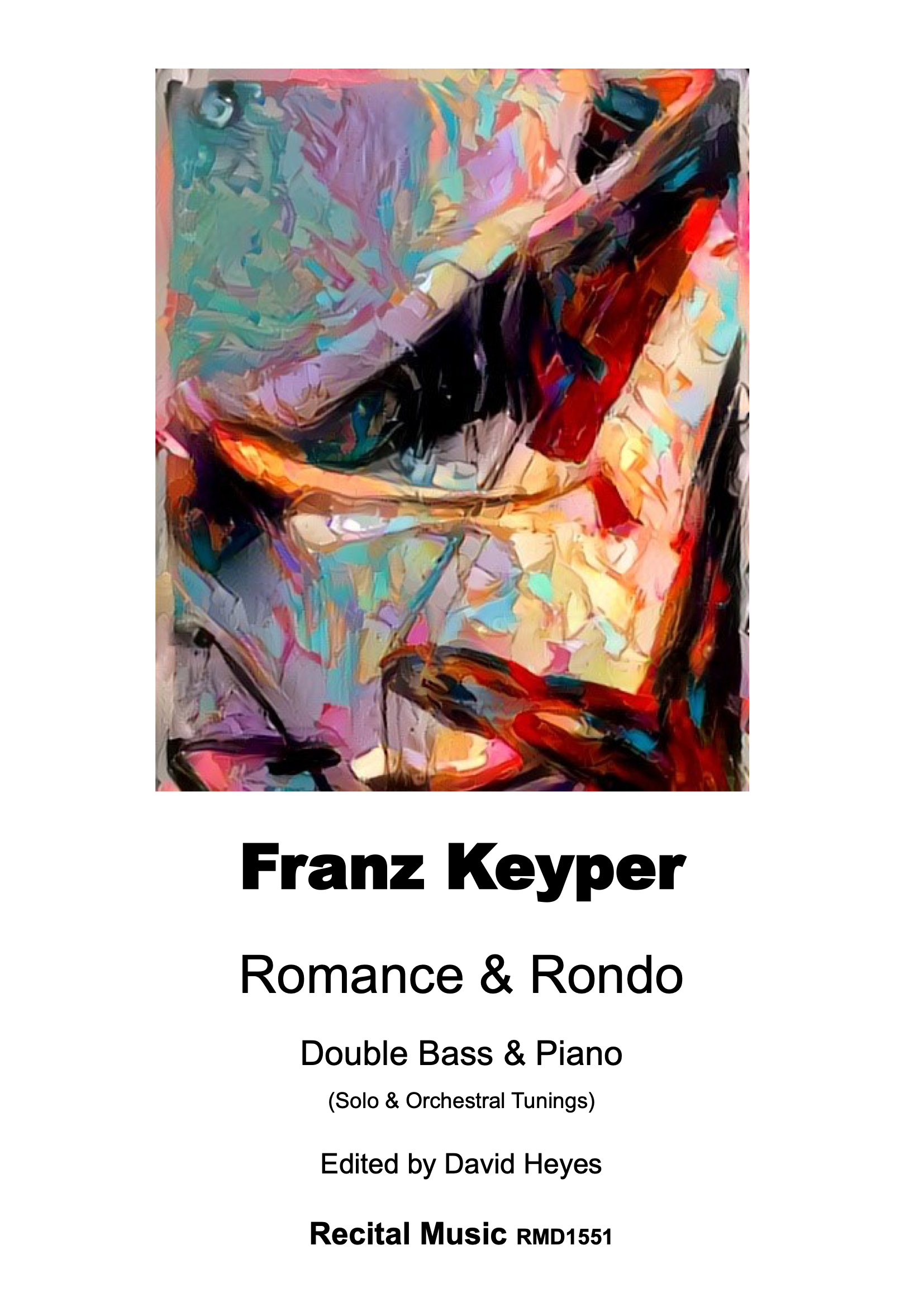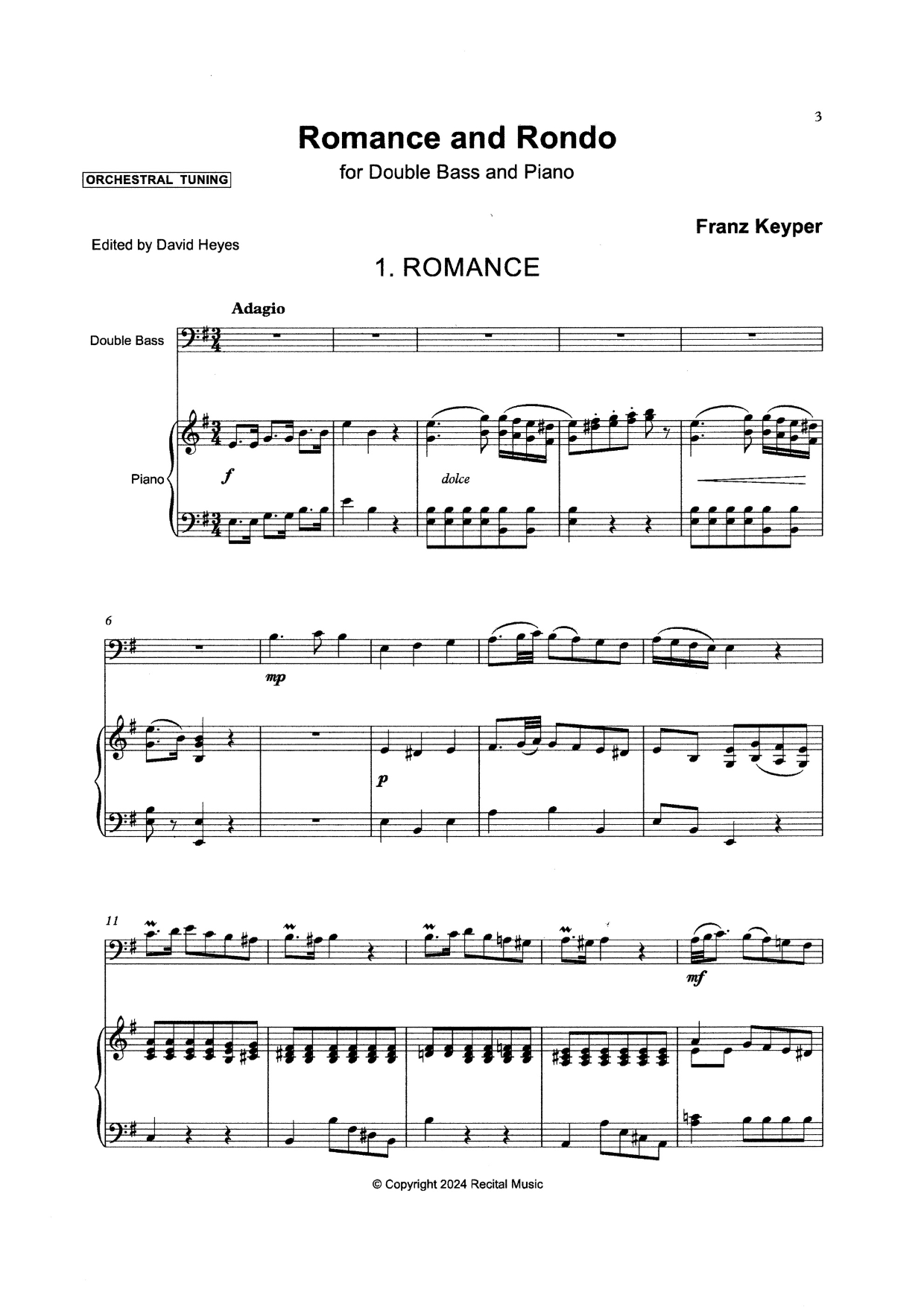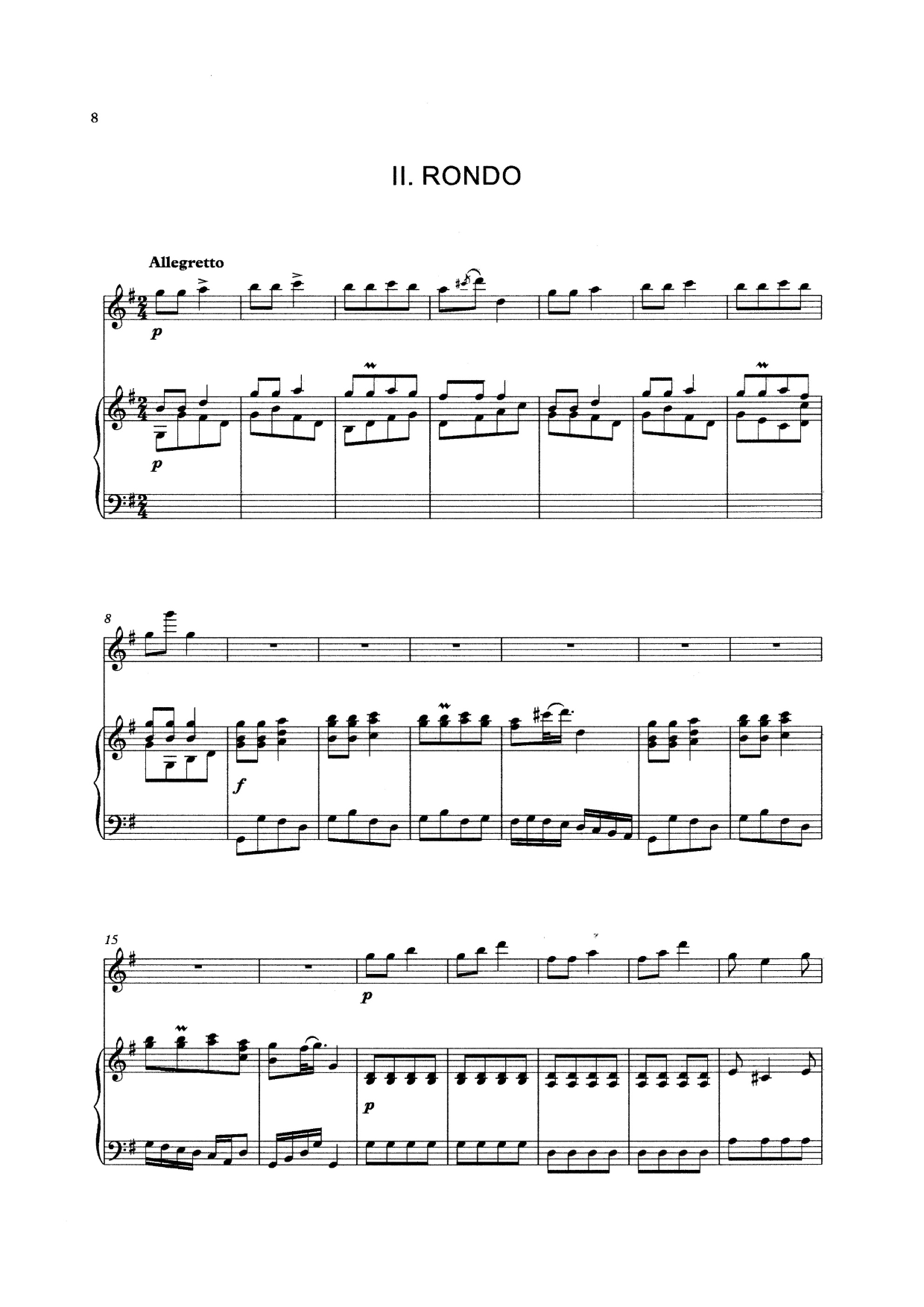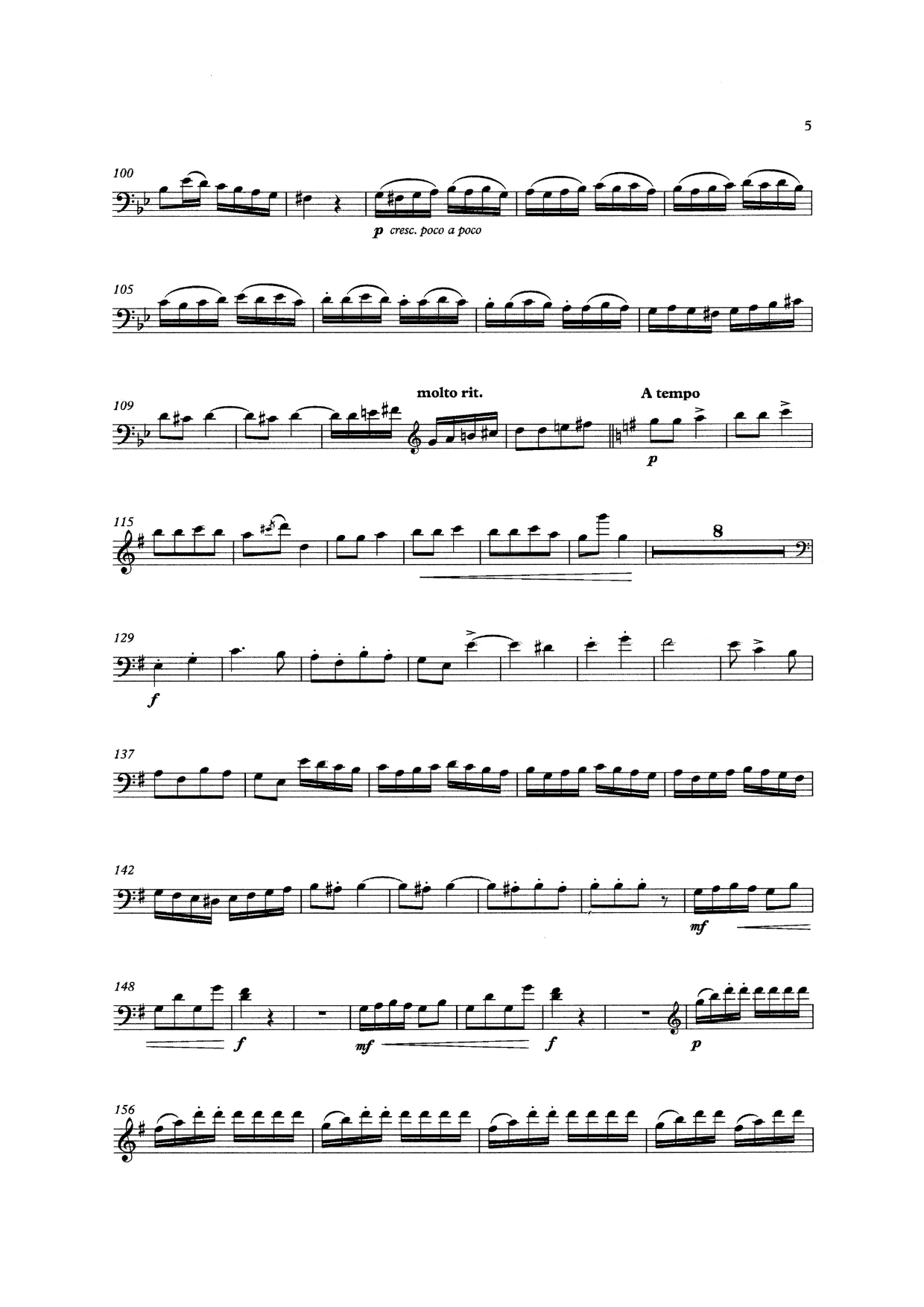David Heyes
Franz Keyper: Romance & Rondo for double bass & piano (ed. Heyes)
Franz Keyper: Romance & Rondo for double bass & piano (ed. Heyes)
Couldn't load pickup availability
About the Composition
The name of Franz Keyper (c.1756-1815) is known to bassists thanks to his fun and lively Romance & Rondo for double bass and piano or orchestra. Very little is known about him except that he was Principal Bass of the Royal Danish Orchestra in Copenhagen for a number of years and he also composed seven concertos (composed between 1786 and 1804-7) for the double bass, one for harp and a duet for cello and double bass.
Romance & Rondo brings together two movements from Concertos 1 and 2, obviously put together as a standalone piece by the composer and this new edition, for the intermediate bassist, includes piano accompaniments for both solo and orchestral tunings.
The Romance is a charming and elegant piece which emphasises the singing quality of the double bass in its orchestral register, contrasting a rhythmic and entertaining Rondo with its spirited opening theme which is played in harmonics.
Romance & Rondo is a wonderfully accessible and exciting recital piece for the intermediate bassist, ideal for any audience or occasion, and is a bright and appealing piece to showcase the double bass.
This edition includes piano parts in orchestral and solo tuning.
About the Composer
In his history of the Danish Royal Orchestra 1648-1848, Carl Thrane writes that Franz Keyper was born in Neurode, County Glatz, Silesia, with no date of birth suggested, but in the Danish census of 1801 he is listed as being 45 years old, with the occupation ‘Hofviolon’ (Court Musician), and 1756 as a possible year of birth is probably correct.
Thrane includes little information about Keyper’s life before he arrived in Copenhagen but does state that he was intended to be a monk and that he received much of his musical education in a monastery. After dancing at his sister’s wedding he faced punishment and fled the monastery, entering the service of a unnamed Polish nobleman.
Apparently Keyper did not enjoy working for the nobleman and preferred to tour and arrived in Copenhagen in the spring of 1788. His playing was admired and he stayed on as part of the court orchestra, where he was promoted following the death of double bassist Gottfried Schreiber.
